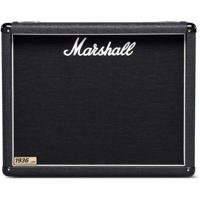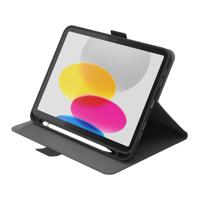About Antennas
Imagine holding your hand up and catching pictures, words, and information passing by. That is exactly what antennas do! To be precise, these electronic devices are metal rods or dishes that catch radio waves. Subsequently, they turn these waves into electrical signals and feed them into electronic devices such as TV sets, radios, or telephonic systems. Let us explore a little more about them to get a better idea.
Antennas are accessories that serve as the key to all forms of modern communication. They are electronic devices but are simpler than other electronic gadgets. Generally, they are transducers that convert voltage from a transmitter into a radio signal. Consequently, they pick these signals in the air and convert them back into a voltage for recovery in a receiver. Moreover, these devices are certainly a critical component in establishing and maintaining reliable radio or TV signals. If you’re currently on a hunt for an antenna, we’ll reveal everything you need to know about it. So, read on.
Get to know the different antenna types
Antennas are the fundamental components of any electrical circuit. They provide an interconnecting link between free space, transmitters, and receivers. For this reason, these devices play a prominent role when it comes to wireless communication systems. They convert the electronic signals to electromagnetic waves efficiently. When shopping for them online, keep an eye on their properties including the aperture, gain, bandwidth, and directivity. Effective length and polarisation are also essential characteristics that must be considered. Now, let us look at their various types.
Log-periodic antennas: one of the best outdoor TV antennae
Outdoor antennas are multi-element, directional narrow beams that work on a wide range of frequencies. They are a series of dipoles placed along their axis. Thus, these are also called log-periodic arrays. The series of dipoles place at differently spaced intervals of time, followed by a logarithmic function of frequency. The bowtie and log-periodic are two of their most common types. Well, with such precise construction, outdoor antennas are indeed one of the most sought-after types for televisions. Apart from televisions, you’ll also find them in a wide range of other applications.
Wire antennas: the perfect antennas for cars
Also known as curved or linear, wire antennas are very simple and cheap. What’s more, they come with an array of applications too. Generally, these types have four main categories: dipole, short-dipole, monopole, and loop. These are an ideal choice for cars, other vehicles, ships, aircraft, and so much more. And since wire antennas come in several varieties, each of them has a specific purpose and use. Keep in mind also that every antenna has peculiar features that help perform its function perfectly. For example, a special case of this dipole is the monopole. It is half of the dipole.
Over-the-air antennas
Helical varieties are one of the prominent types of sky wires under this category. Unlike the name, these have a relatively simple structure. For instance, they come with one or two wires, each wound up forming a helical structure. Moreover, they are usually backed by a shaped reflector and driven by an appropriate feed. Another antenna that makes use of the passive elements is the Yagi-Uda. This type is effective and is inexpensive. It can be constructed with one or more reflectors, folded dipole elements, and directors. All these play a crucial role in the easy transmission of signals.
Microwave antennas
These are critical elements of any microwave network. Thus, the antennas that operate in microwave frequencies are known as microwave antennas. You’ll find several types of them with various mechanical and electrical functions. However, a parabolic one is typically used for a terrestrial microwave network. Some other types used for this network include flat panel, yagi, sector, horn, and dielectric lens antennas. Each of these has different characteristics. Therefore, you must choose the most suitable one for specific systems and situations. Furthermore, you must also assess their quality thoroughly before buying them.
Reflector antennas
There are two major types of reflector sky wires. The corner reflector comprises one or more dipole elements placed in front of it. You can increase the directivity of a reflector antenna using reflectors. Alternatively, the radiating surface of the parabolic reflector has very large dimensions compared to its wavelength. However, you can examine certain factors of these sky wires by using ray optics. One of the most important properties of a reflector variety is the conversion of a diverging spherical wavefront into a parallel wavefront.
Tips on how to buy Antennas online in Dubai
If you already have good internet speed, you don’t need to invest in an antenna anymore. However, a high-quality one is a necessity for people struggling with snail-slow signals. If you’re one of them, then the below points will help you make the right choice. So, check them out to get one suitable for your requirements and offers the best value for your money.
- Check the antenna gain – This is the parameter that measures the degree of directivity. The antenna with a higher gain is more effective in its radiation pattern. It is designed in such a way that you can increase the power in the wanted directions while you can decrease it in other ways.
- Consider the aperture – This effectively participates in the transmission and reception of electromagnetic waves. The power that is received by the antenna gets associated with the collective area. This area is known as the aperture of the sky wire.
- Assess the effective length – This parameter of the sky wire determines the efficiency of the antennas in transmitting and receiving electromagnetic waves. You can define the effective length for both receiving and transmitting.
- Know the polar diagram – This is one of the most important elements of the sky wires. In the case of transmission, this is that plot that discusses the strength of the power field emitted by the antenna. A plot is usually obtained for both horizontal and vertical planes.
- Evaluate the bandwidth – This pertains to the capability of the antenna to direct radiated power in a given direction. You can also consider it as the ratio of the radiation intensity in a given direction. The bandwidth is one of the desired parameters when choosing a sky wire.
Antennas have come a long way since their inception and have now become an integral part of the digital world. This is probably why you need to know and understand them properly. There is no ‘one-size-fits-all’ antenna. Each type has its own unique features and purpose. Some are indoor antennas while some are over-the-air antennas. You can find antennas for cars too. So, while buying them, you should check whether they are the ones that best suit your gadget.
Question & Answer
Are antennas recyclable?
With the analogue’s evolution to digital broadcasting, many homeowners tend to discard the rooftop antennas that they no longer need. Once you take them down, you’ll realise that they are large and awkward. So, you’ll certainly want to throw them out. However, do not discard them just yet, as there are several reuse options. The elements that you use in a TV antenna are great for making ham radio.
Are antennas analogue or digital?
Usually, you can find them in both analogue and digital. However, with the advent of the digital revolution, many people now favour digital ones. That’s because they offer an increased picture and audio quality. Moreover, these provide interactive services and multiple channels. However, there are still people who have analogue antennas. That’s because these minimise ghosting of the image and repeating it from various sources. Moreover, they have been around for well over 60 years.
What can you use antennas for?
They are basically used for catching and transmitting information through various electrical devices. In other words, they are transducers that convert electromagnetic waves into electric currents. That’s why they are omnipresent in various gadgets. From radio to television, cars, and mobile phones, you’ll find these sky wires everywhere. You’ll find both wired and some wireless ones. Either way, they are an essential item for residential and commercial purposes alike.
How does a TV antenna work?
Basically, all TVs require an antenna to pick up stations and that’s precisely what it does. TV antennas pick up signals and television networks then broadcast them. Upon receiving the signals, they get converted into audio-video signals. The television then uses the signals to display whatever program you are watching. Also, note that antennas will only receive local signals and those broadcasted by major stations.
When did TV antennas become popular?
The first antennas came into being in the year 1888. German physicist Henrich Hertz invented these smart electronic accessories in his pioneering experiments to prove the existence of waves. But nobody even cared about getting these antennas till the television sets were introduced in the market. As these home appliances came into the limelight, people started using antennas to improve the TV screen’s picture quality. From Yagi Udas to horn and parabolic reflectors, you’ll find several types of antennas out there. With the advancement of technology, you can also find HDTV antennas these days.
So, will you be buying an antenna anytime soon? Yes? Well, then check out some high-quality antennas here on Shops.ae. We are a super-smart product search engine where you can buy the best TV antennas in town. You can browse through products from brands like Techhive, Shure, Tvnowpro, Philips, Vuqube, Glomex, and Greentek, only on our unique shopping platform.




